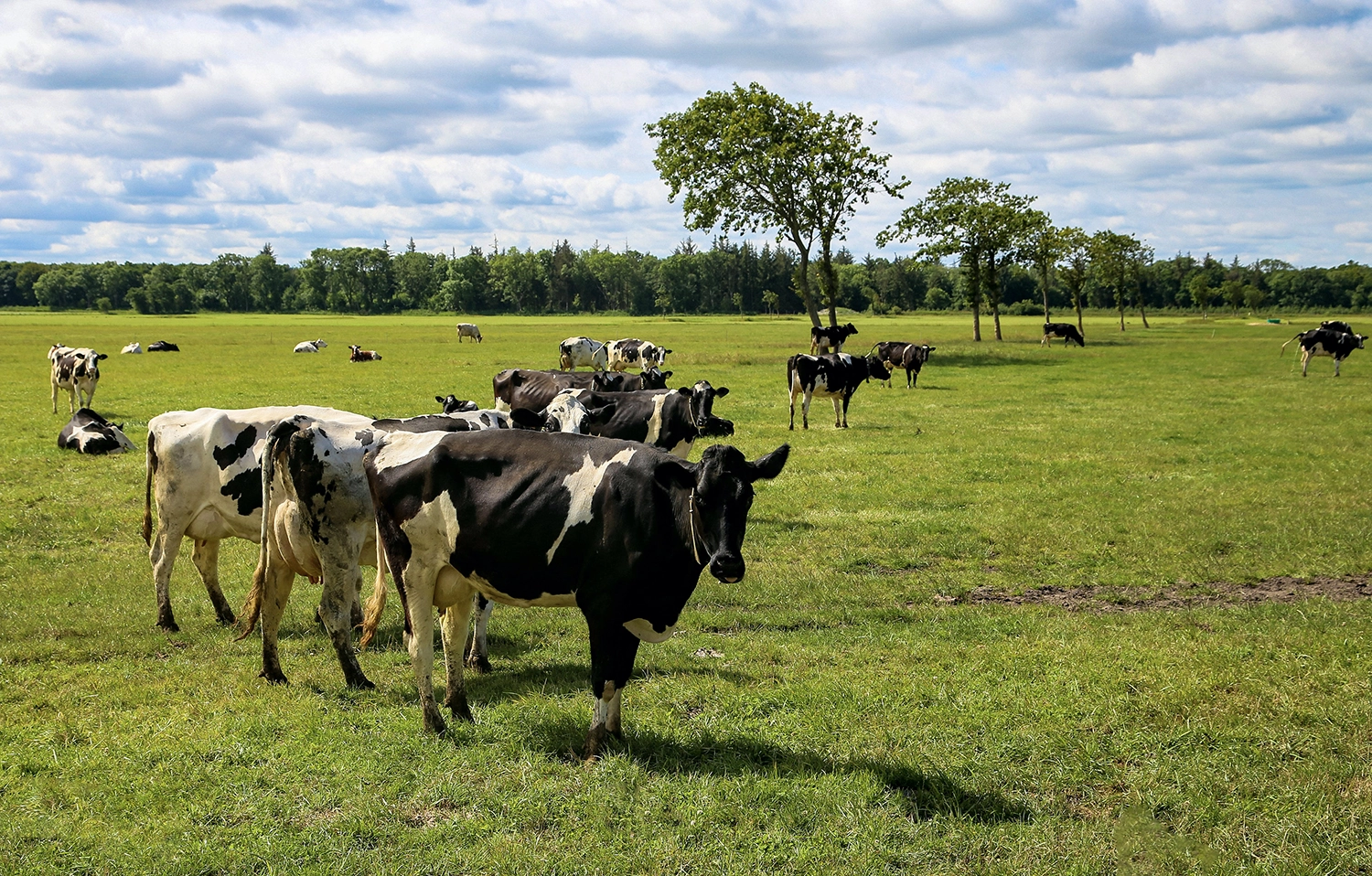A World Without Meat?

PREMIUM CONTENT for MEMBERS ONLY
Humans eat a staggering amount of meat every year — some 800 billion pounds of it, which is enough flesh to fill about 28 million dump trucks. Wealthy, industrialized nations such as the United States are responsible for a disproportionate amount of that total amount, contributing to the fast rate in which our planet is warming. Cows, sheep, and goats emit heat-trapping methane. In order to feed these animals, massive amounts of land are transformed and freshwater is used to grow monocrops such as corn and soy, which farmers spray with fertilizer that emits nitrous oxide, another potent planet-warming gas. Ultimately, raising grain fed livestock uses a lot of land that would otherwise be a productive carbon sink to absorb emissions and help regulate the planet’s temperature.
“Researchers suggest that eliminating meat tomorrow would have dire consequences across the globe…”
At this year’s COP28 UN climate conference, activists are expected to discuss ways to shift diets toward plant-based foods as a way to lower animal agriculture’s climate pollution, the source of 15 percent of the planet’s greenhouse gas emissions. Although this topic has been discussed for the past several years, the question “what would happen if everyone actually stopped eating meat tomorrow?” has not been extensively examined. Researchers suggest that eliminating meat tomorrow would have dire consequences across the globe, including joblessness, crumbling economies and the threat of food security in regions lacking nutritious plant-based alternatives.
“Eliminating livestock overnight would create a food crisis for many people…”
Livestock makes up about 40 percent of agricultural production in rich countries and 20 percent in low-income countries. According to the United Nations’ Food and Agriculture Organization, animal-based products are vital — economically and nutritionally — to the lives of 1.3 billion people across the world. One-third of the protein and nearly one-fifth of the calories that people eat around the world come from animals. Researchers claim the economic damage of phasing out meat completely would disproportionately impact low-income countries with agrarian economies who rely on farming and raising livestock for critical income. Eliminating livestock overnight would create a food crisis for many people in regions like South Asia and sub-Saharan Africa where animal products comprise a small but crucial part of the average person’s starch-heavy diet. Preserving access to meat, milk, and eggs is key to keeping people healthy in low- and middle-income countries since animal-based foods are high in vitamin B12, vitamin A, calcium, and iron. Taking away meat would not only deprive many communities of essential nutrients and protein, it would also cause cultural damage. In many communities the raising, slaughtering and preparation of animals for food or other uses is a cultural tradition that brings the people and land together. These customs have symbolic meaning to the community and without animals, these traditions would be lost.
“Wealthy countries with excessive meat consumption habits and access to plant-based alternatives are the least likely to suffer nutrient deficiency from a decrease in animal-based foods.”
Wealthy countries with excessive meat consumption habits and access to plant-based alternatives are the least likely to suffer nutrient deficiency from a decrease in animal-based foods. For context, a shift towards a plant based diet will have drastically different consequences for the average American who consumes about 220 pounds of red meat and poultry each year compared to someone in rural sub-Saharan Africa who eats 10 times less meat and is reliant on their occasional goat or beef stew for essential nutrients.
“…phasing out meat entirely is unrealistic and not a practical solution to the climate crisis.”
Many researchers agree that phasing out meat entirely is unrealistic and not a practical solution to the climate crisis. Due to the current structure of the global economy, immediately cutting out livestock would cause millions of jobs lost and a slow-down of the economy while shifts in labor catch up to the sudden change. Many researchers suggest using guidelines established by the EAT-Lancet Commission, an international group of scientists who have designed a diet intended to give people the nutrients they need while keeping the planet healthy. The Planetary Health Diet consists of roughly 35 pounds of meat per year which would mean a drastic reduction of cows and chickens in countries like the United States, Australia, China, Brazil, and Argentina, and a slight increase in parts of Africa and South Asia. Not only would the reduction in animal-based foods improve the health of the planet, it would likely decrease the rates of heart disease and cancer of people in meat-loving countries who consume excess amounts of red and processed meat.
“Slowly phasing out meat over 15 years would have huge net wins for the planet…”
Considering the consequences and complexities of a complete elimination, researchers and advocates have instead recommended a more realistic goal of cutting the current meat production in half. A recent study found that replacing half of animal-based foods with plant-based alternatives would lower agricultural emissions 31 percent by 2050. Slowly phasing out meat over 15 years would have huge net wins for the planet; as much as one-third of greenhouse gas emissions would be cut, biodiversity would begin to replenish, water use would decrease drastically, and abandoned rangelands and pastures would have a chance to rewild and sequester as much as 550 gigatons of carbon. Researchers estimate that all these improvements would be enough to keep the planet from warming to catastrophic levels.
“It doesn’t have to be an all-or-nothing approach.”
All that to say, completely eliminating meat tomorrow is unrealistic even though there is a small but increasing number of people in the Western world that are switching to a vegan diet. But there are doable steps you can take today to reduce the carbon footprint of your diet. If you live in a region with access to nutritious alternatives, consider swapping out meat for fish or legumes such as lentils or beans which are high in protein and fiber. For many of us, meat-based dishes may be part of a holiday tradition or custom that is a meaningful way for families and communities to bond and come together. These traditions are important and should be preserved, so consider choosing plant-based options at home so you can still partake and enjoy traditional dishes on holidays and celebrations. “It doesn’t have to be an all-or-nothing approach,” Raychel Santo, a food and climate researcher at the World Resources Institute, said.

Juliette Frank is a recent UCLA graduate with a degree in Public Affairs and Food Studies. Her interests include the interrelation between food systems, digestive health, and the environmental impacts of food production.
✓ This article was reviewed and approved by Emeran Mayer, MD